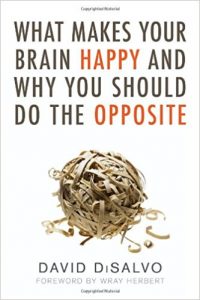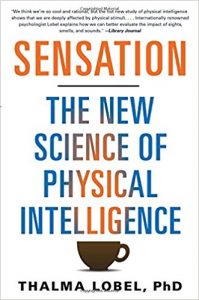Everyone feels safer when a lifeguard is on duty. But you may be relying more on the lifeguard than you should, especially if you have kids. In this episode we start by discussing what you may not know about swimming safety – with or without a lifeguard. And this information could save your life one day.
Then the weird paradox of the human brain that what we want may not be what we need and what we need may not be what we want – or so your brain thinks. Science writer David DiSalvo, who has written for Forbes, The Wall Street Journal, Psychology Today and many other publications is also author of the book What Makes Your Brain Happy and Why You Should Do the Opposite . He talks with me about this interesting paradox and why this is important to how you live your life.
Plus, if you’ve ever been stuck in a traffic jam that appears to have no cause, you’ll be fascinated by what you’ll learn about how we drive and how we could drive better.
And there is something called “physical intelligence.” It refers to how your 5 senses can affect your attitude and behavior –and it is going to sound strange. For example, feeling something soft can “soften” your personality. Feeling something warm can create warm feelings for another person. I know it sounds nuts but Dr. Thalma Lobel author of the book Sensation: The New Science of Physical Intelligence explains the science behind this. More importantly, she reveals how to use this knowledge to your advantage.
Have you subscribed to the podcast yet? When you do, the episodes get delivered to you automatically – so you never miss one. To subscribe on iTunes go to: https://itunes.apple.com/us/podcast/something-you-should-know/id1150124880
RESOURCES FOR THIS EPISODE:
Source for story about swimming and lifeguards: http://www.rd.com/health/wellness/water-safety-lifeguards/1/
Amazon link for David DiSalvo’s book, What Makes Your Brain Happy & Why You Should Do the Opposite : http://amzn.to/2pPqDJO
Amazon link for Thalma Lobel’s book, Sensation: http://amzn.to/2raTg7Y
Source for the story about traffic jams and driving: http://www.msn.com/en-us/autos/autoinnovation/just-a-few-self-driving-cars-on-the-highway-could-cut-random-traffic-jams-by-half/ar-AAfi1mD





